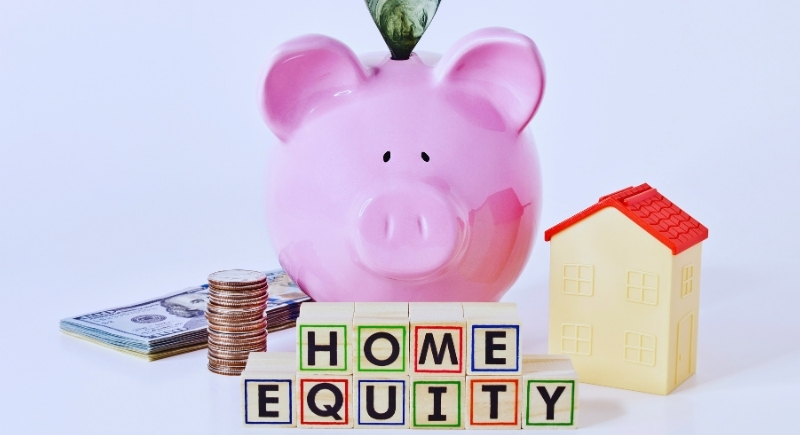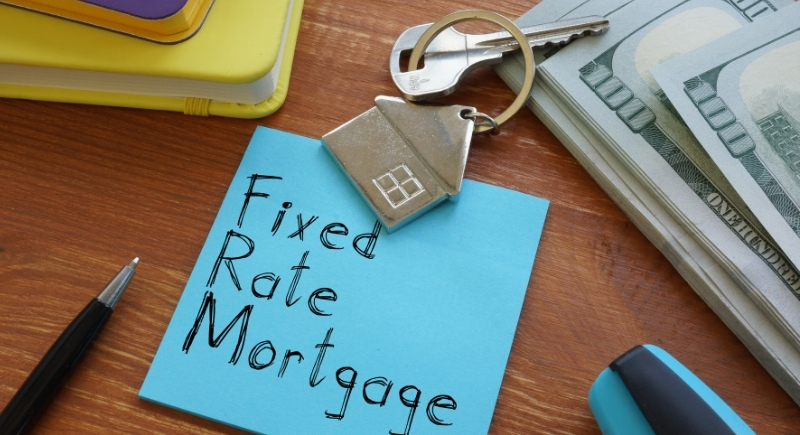How Does Buying a Home Actually Help You Build Wealth?
Buying a home is a high-stakes decision. Prices are steep, rates fluctuate, and repairs can become expensive surprises. It’s understandable why some people prefer to rent and save instead. Yet, many still choose to buy because homeownership gradually changes their financial picture in measurable ways.
At first, progress feels slow. However, over time, mortgage payments build equity, and property values often rise with the market. Eventually, you get an asset that strengthens your household’s financial stability year after year.
Building Equity: The Hidden Savings Account

Image via Getty Images/gerenme
Owning a home is a long-term commitment that can be heavy and expensive at first. Yet, month after month, while life goes on and bills keep coming, those mortgage payments start building equity.
Home equity is the portion of your home you actually own, the difference between your property’s value and what’s left on your mortgage. Each payment chips away at that loan balance, and if your home’s value increases, the gap widens even faster. According to the Federal Reserve, the median net worth of homeowners reached roughly $396,000 in 2022, compared with about $10,000 for renters. That’s a canyon of a gap.
The reason why the early years of a mortgage can feel slow is that most of your payment covers interest, not principal. As time passes, more of each payment starts working for you instead of the bank. Pay extra toward the principal or make biweekly payments to speed up that process.
Appreciation Adds to the Payoff
Even without extra payments, time tends to do some of the work independently. Home prices in the U.S. have risen by an average of around 5 to 7 percent per year over the past decade, according to the Federal Housing Finance Agency. That means while you’re paying down your loan, your asset is likely gaining value. The longer you own, the greater the effect, especially if your neighborhood grows in popularity or benefits from new development.
This appreciation builds wealth in the background, but it also gives you flexibility. The equity you’ve gained can be borrowed against for upgrades, education, or paying off higher-interest debt. Just be careful with that approach because tapping your equity too often can slow your financial growth.
Stable Payments, Predictable Future

Image via Getty Images/Andrii Dodonov
One of the biggest advantages of owning instead of renting is predictability. A fixed-rate mortgage locks in your monthly principal and interest payments for decades. Renters can’t say the same since leases end, markets shift, and rent hikes come without warning. With ownership, your housing costs are steadier, and that stability makes planning easier.
Even when property taxes and insurance rise, your base mortgage stays put. As your income grows, that payment consumes a smaller portion of your budget while freeing up money for saving and investing. Over time, the stability of homeownership creates financial breathing room that renting rarely allows.
Tax Perks and Hidden Financial Wins
Homeownership also comes with tax advantages. If you itemize deductions, you can deduct mortgage interest and property taxes. And when you eventually sell your primary home, profits up to $250,000, or $500,000 for married couples, are exempt from capital gains taxes if you’ve lived there for at least two of the past five years.
The tax break can turn a modest appreciation into a major payday. Other smaller perks include deductible mortgage points or the ability to roll profit into another property.
Generational Wealth

Image via iStockphoto/gorodenkoff
A home can be a foundation for the next generation. Passing property down allows families to build stability that compounds over time. Heirs benefit from a “step-up” on a cost basis, meaning they’re taxed only on gains that occur after inheriting, not on decades of previous appreciation. In plain terms, that home becomes a financial springboard instead of a burden.
This is why owning property has long been tied to generational wealth in America. Families that manage to buy, keep, and maintain their homes often give their children a tangible financial advantage that renting can’t replicate.
Real Wealth Takes Time
According to CoreLogic, homeowners gained about $1.3 trillion in equity nationwide in the second quarter of 2024 alone. The truth is, homeownership works because it forces consistency. Every mortgage payment acts like an automatic deposit into your future net worth. You’re paying for shelter while building something that appreciates, protects against inflation, and eventually pays you back.